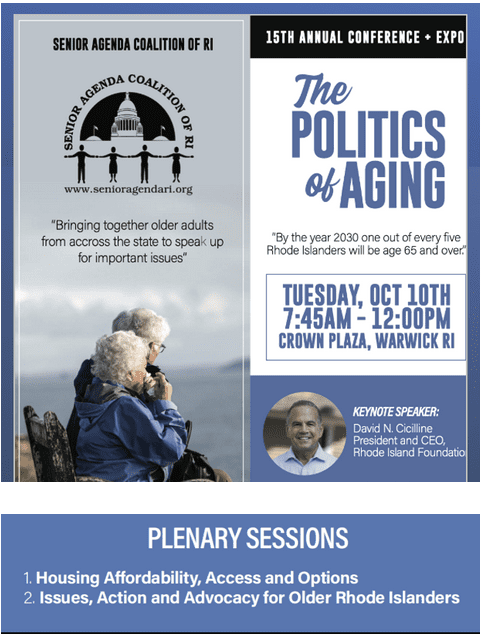Search Posts
Recent Posts
- Rhode Island Weather for June 5, 2025 – Jack Donnelly June 5, 2025
- RI Veterans: Did you know? 05.06.25 (Rental help, events, resources) – John A. Cianci June 5, 2025
- We Cook! Mill’s Tavern Rosemary-Lemon Statler Chicken, Yukon Golds, Haricot Vert and Dijon Demi June 5, 2025
- ICE arrests nearly 1,500 in Massachusetts. First part of “Operation Patriot” – Nantucket Current June 5, 2025
- Rhode Island Weather for June 4, 2025 – Jack Donnelly June 4, 2025
Categories
Subscribe!
Thanks for subscribing! Please check your email for further instructions.

The Village helps grandparent/kinship caregivers in need – Herb Weiss
By Herb Weiss, contributing writer on aging issues
When we dream about our retirement years, these dreams most likely don’t include images of diapers, children’s tantrums, and school buses. However, for some grandparents and other kinship caregivers, their later years include these images, as they become primary caregivers for their grandchildren/kin children.
Nationally, more than 2.5 million children are being raised in kinship families which includes grandparents, other extended family members, or anyone with an existing relationship with the child or family. When these children cannot be with their parents, the next best thing is being placed with kin.
There are many benefits to staying with kin rather than being placed into the state’s foster care system. These can include experiencing less trauma; increased stability, higher rates of permanency; better behavioral and mental health outcomes; more feelings of belonging and being accepted, increased likelihood of living with or staying connected to their siblings, and a greater sense of cultural identity and connections to family.
Additionally, kinship caregivers save the U.S economy approximately $ 6 billion dollars per year by keeping children out of formal foster care. Across the nation, there is a growing recognition of the importance and value of kinship caregivers. However, all of this comes at a physical, mental and financial cost to the kinship caregivers.
The challenges of being a kinship caregiver
A new research study, Caregiver Profile: A Closer Look at Grandparents Caring for Grandchildren, by the National Rehabilitation Research and Training Center on Family Support (NCFS) at the University of Pittsburg, grandparent caregivers are experiencing a litany of adverse effects causing them to become a particularly vulnerable group. Grandparents are facing a higher rate of disability, lower employment, and a greater likelihood of poverty, says the study’s findings. One quarter of grandparents raising grandchildren live below the poverty line.
“Many challenges exist for grandparent and kin caregivers of children when it comes to navigating the legal and custody landscape while supporting their own needs, from physical and mental health to financial and employment security. We think this data [detailed in the 16 page report released in Sept. 2023] showcases the need to move forward on the recommendations developed by the Advisory Council to Support Grandparents Raising Grandchildren (SGRG) and the Recognize, Assist, Include, Support, and Engage (RAISE) Act Family Caregiving Advisory Council that can help to support grandparent and kin caregivers,” said Meredith Hughes, JD, MPH, Senior Policy Analyst at University of Pittsburgh Health Policy Institute and Assistant Professor in the School of Public Health.”
It is important to provide supportive services for grandparents raising grandchildren as many of these caregivers lack the necessary resources to fully support the children in their care. Support in areas such as kinship navigator programs that provide a single-entry point for learning about housing, health services, and financial and legal assistance, along with improved household resources and access to mental health services are needed. Rhode Island has a kinship navigator program for families involved with the department, but currently one does not exist for those who are not involved. For every family involved with the Rhode Island Department of Children, Youth & Families, (DCYF), there are 5 who are not.
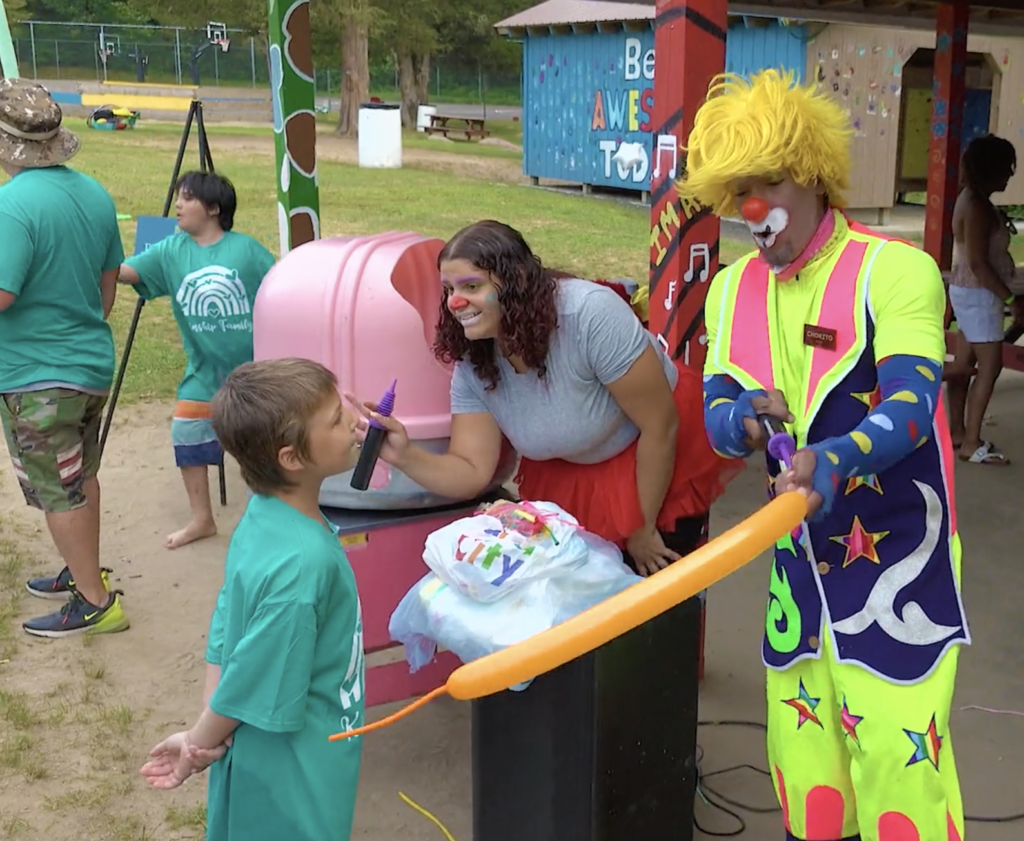
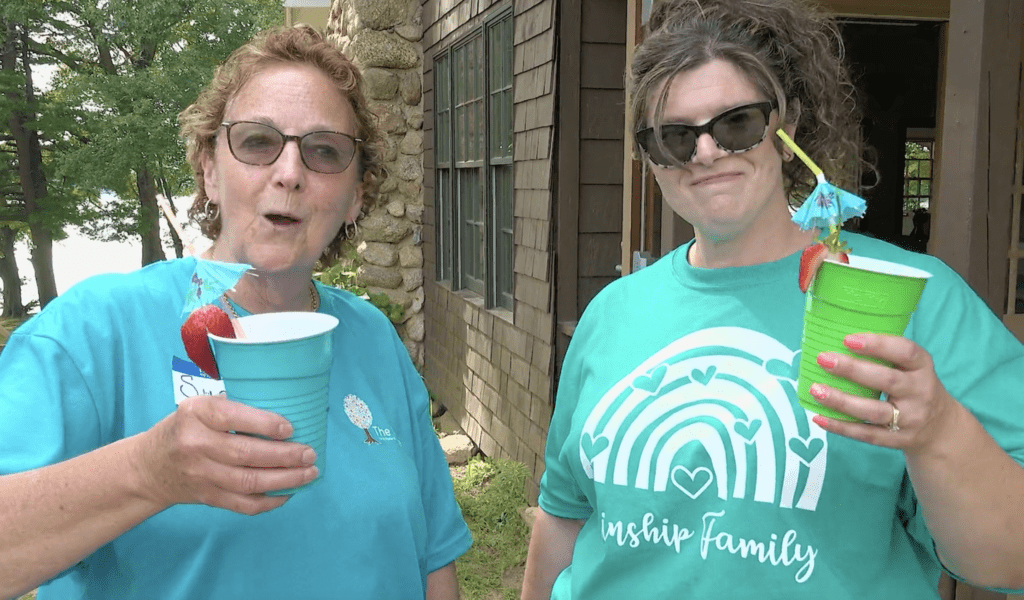
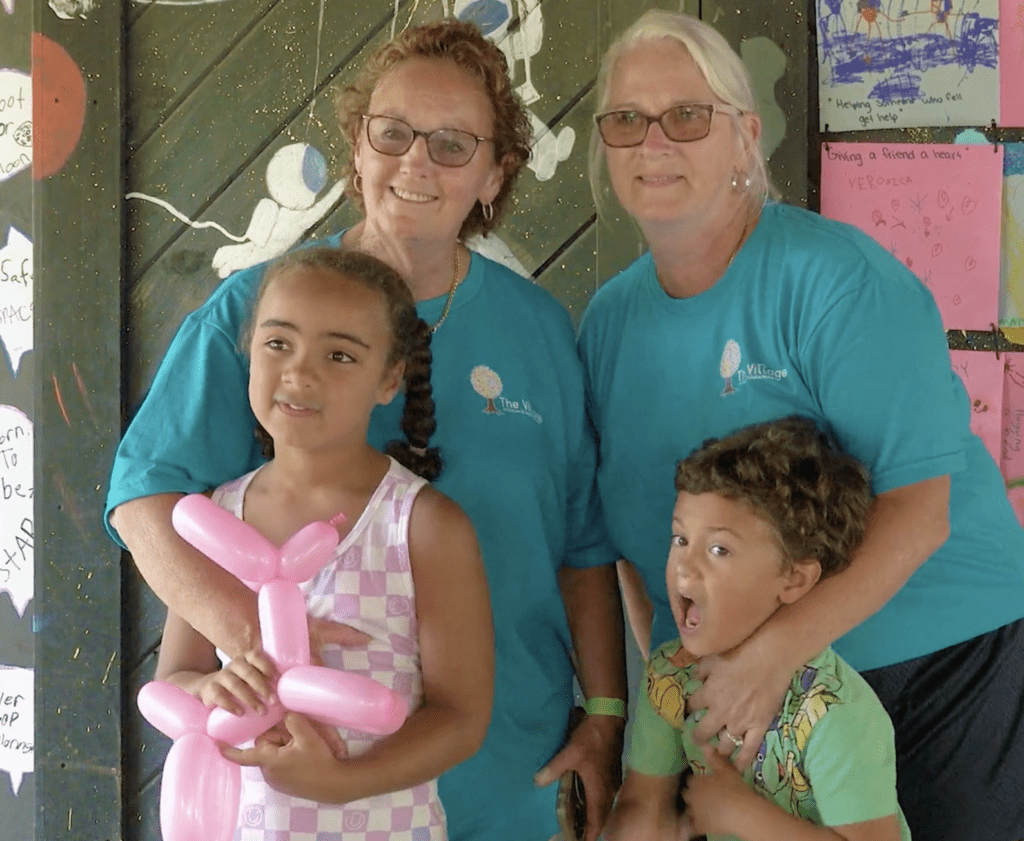
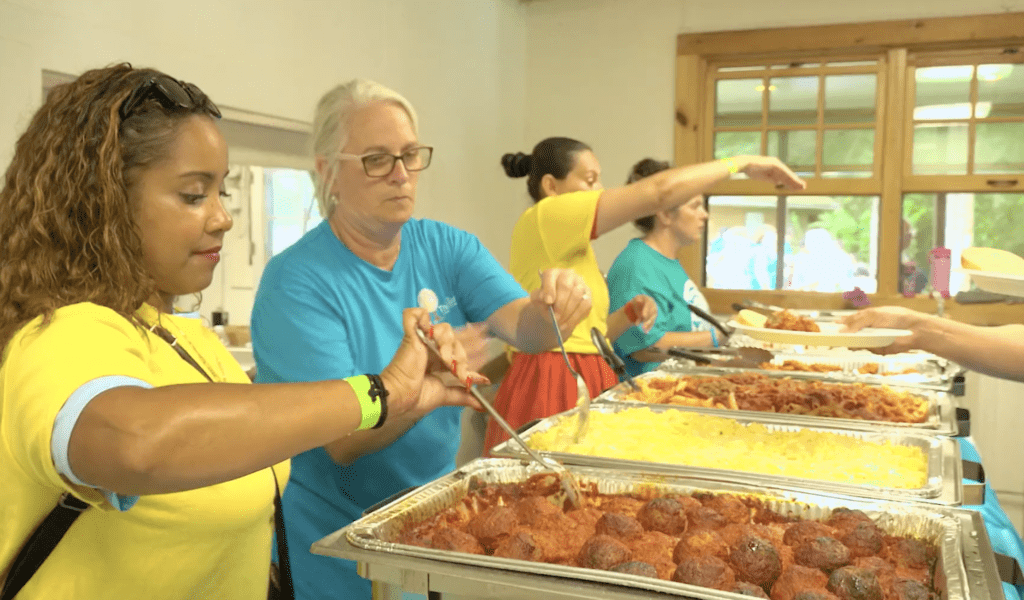
Grandparenting in the Ocean State
According to the U.S. Census bureau, over 13,968 children are living with and being raised by their grandparents in Rhode Island, who make up the largest percentage of relative caregivers. Some kin families are involved with the child welfare system when children have to be removed from their home on an emergency basis. Rhode Island is one of the leading states in the nation in finding and placing children with kin. The state’s long-held philosophy is that children do better by living with kin. Of all the children in the state’s foster care system, around 70% are placed with kin.
For families involved with the DCYF, (known as “formal” kin caregivers) while it can be a distressing experience, they do gain access to needed resources and services, as well as receive monthly stipends and other supports to care for the children. For families who have private arrangements and are not involved with DCYF (“informal” caregivers), finding those resources and services can be challenging. Many if not most of kinship families are not involved with the child welfare system and have no idea that there are any resources. Finding and supporting those families has become one mission of the Cranston-based The Village for RI Foster and Adoptive Families and the Warwick-based Heart Tree.
The Village, established in 2016 by a group of five foster and adoptive families, provides peer support to all RI foster, adoptive and kin families. The Village provides support through peer mentoring, peer-led support groups and family events, as well as running a “Closet” where families both donate and receive material things such as clothing, toys, diapers etc. The Heart Tree, a sister organization, also provides those same supports in a culturally appropriate manner to our Spanish speaking families. The Heart Tree was established in 2021 to meet the unique needs of Spanish speaking foster, adoptive and kin families.
Sixty-three-year-old Laurie Tapozada is a kinship caregiver who sees the value of the assistance provided by the The Village in raising her 8-year-old grandson. “When it first happened and I was suddenly raising a baby at age 55, I didn’t know one single other family like mine, she said.
“My life was turned on its head, I was struggling to manage my hectic work schedule with a baby and dealing with all sorts of messy and painful family dynamics that come with being a kinship caregiver,” says Tapozada.
According to Tapozada, she had to re-educate herself as to how to safely raise a baby without getting support from family and friends who thought she was “crazy” for taking this on. It was overwhelming and distressing until she received a call from a friend who suggested that she “call the Village and they will understand.” From that point Tapozada has become actively involved in the kinship community and network, “It been a life changer for me,” she says.
Although Rhode Island is recognized as a leader in ensuring that children removed from homes are placed with kin, increasing support for kin families is a pressing need. In 2022, the Rhode Island Office of Healthy Aging awarded a grant (through funding from the U.S. Administration for Community Living overseen by the U.S. Department of Health and Human Services) to the Village and the Heart Tree, to identify informal kin families and help connect them to existing resources, and to the growing kinship caregiver community.
RIOHA’s grant also funded a multi-faceted effort, in person and online activities, and incorporating traditional print, broadcast, digital and social media communication and training. Throughout the year, exhibit tables were placed at family events, informational meetings and festivals to get the word out about available resource for kindship caregivers. This grant also created a statewide website where these individuals could go and learn more about resources, as well as find out what is happening in the kin community. This website is www.kinshipcommunityconnections.org.
Project Director Shannon Dos Santos, of the Village, sees the value and positive impact of this grant on Rhode Island’s kinship caregiver families. “I have seen the joy on the faces of many Kinship Caregivers aged 55 and over and their families over the last fifteen months as a result of this grant,” she says, noting that reaching out to this population and getting them to engage has been a challenge. “But when they do – it is beautiful to watch.”
According to Dos Santos, many just feel isolated, overwhelmed and alone. “This grant has allowed us to focus on community outreach and engagement as well as provided us with opportunities to enhance what we at the Village do so well – peer support and family activities! “It has been a blessing to watch these families come together at these events, form relationships with others in similar situations and feel safe sharing their experiences,” she says.
The Village’s Chairman of the Board, Sue Babin, who is also full-time employee and a kinship caregiver, too, added, “This exciting grant initiative has provided The Village with an opportunity to continue to do what we do best… peer outreach and support from people with lived experiences.” And, while RI OHA’s grant ends this month, additional funding will extend the program for 12 months, she says.
For info about The Village for RI Foster & Adoptive Families (The Village), go to https://www.rivillage.org/. Or call (401) 481-5483.
For info about Hispanic Foster and Adoptive Parents Organization of Rhode Island (The Heart Tree), go to https://sites.google.com/view/thehearttree/homeinicio?authuser=1. Or Call (401) 306-9652.
For info about Kinship Community Connections, go to https://kinshipcommunityconnections.org/
WPRI 12’ s Rhode Island Video on Foster Care Month, go to https://www.youtube.com/watch?v=AhI206EXBfQ.
For a copy of the recently released research study, Caregiver Profile: A Closer Look at Grandparents Caring for Grandchildren, by NCFS at the University of Pittsburg, go to
https://www.caregiving.pitt.edu/caregiver-profile-closer-look-grandparents-caring-grandchildren
___

Herb Weiss, LRI -12, is a Pawtucket-based writer who has covered aging, health care and medical issues for over 43 years. To purchase his books, Taking Charge: Collected Stories on Aging Boldly and a sequel, compiling weekly published articles, go to herbweiss.com.


